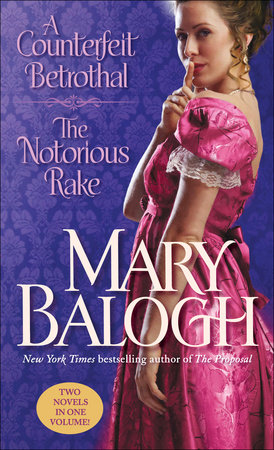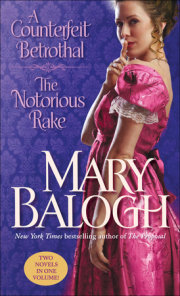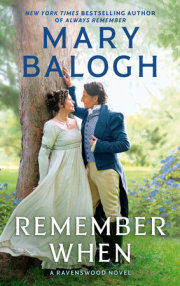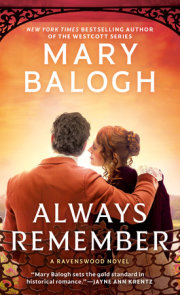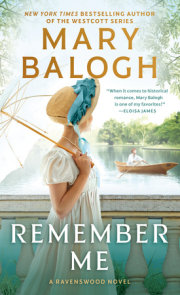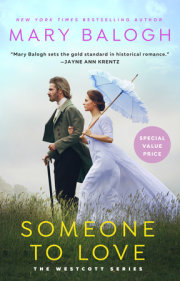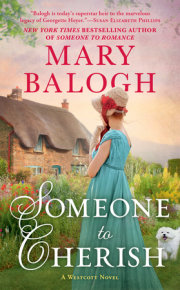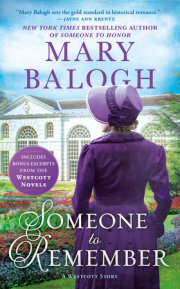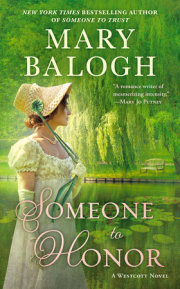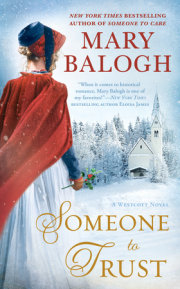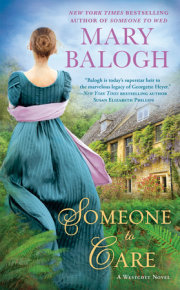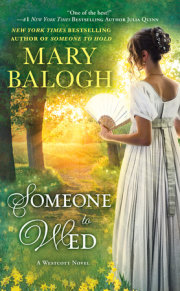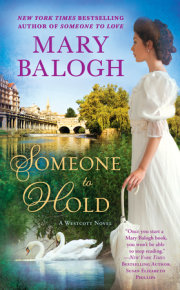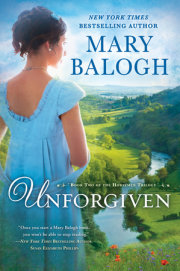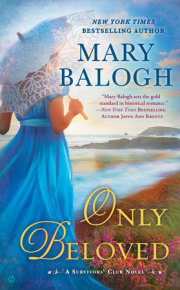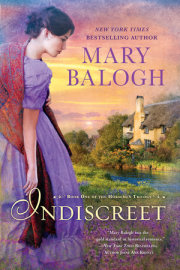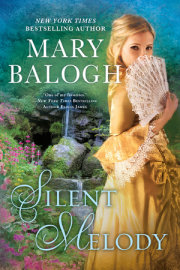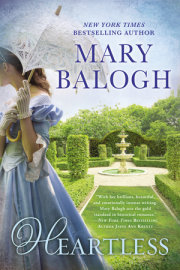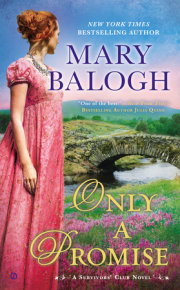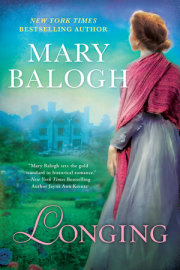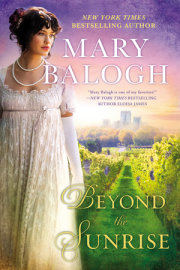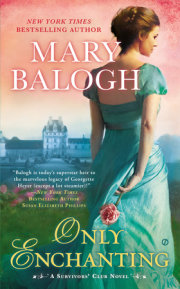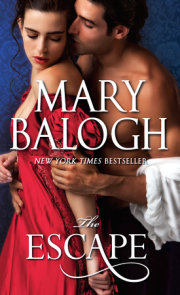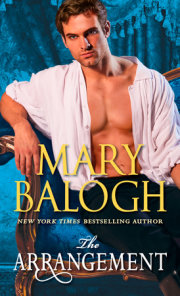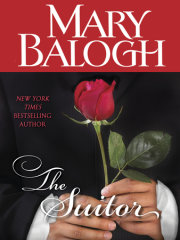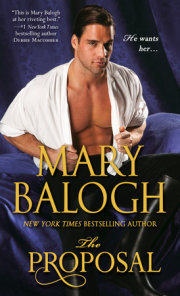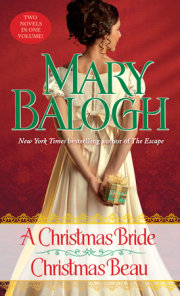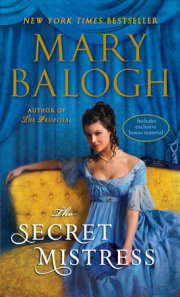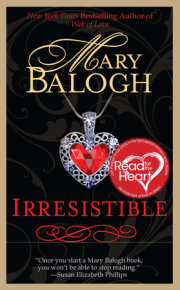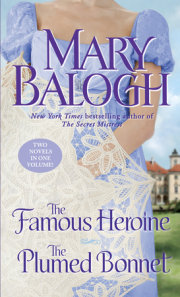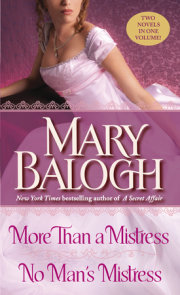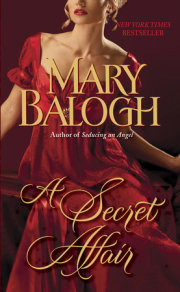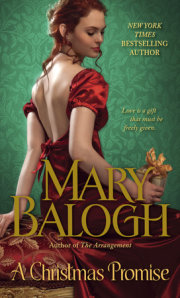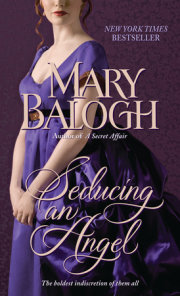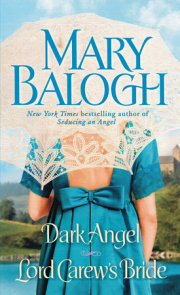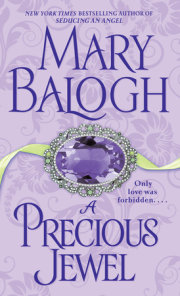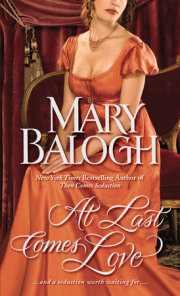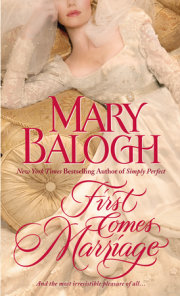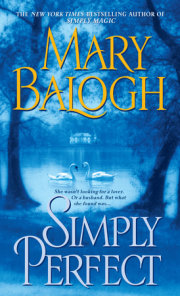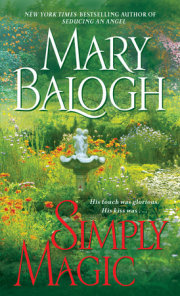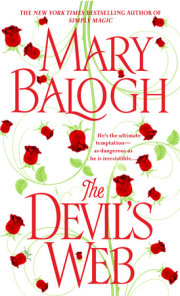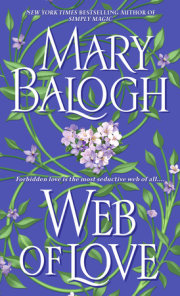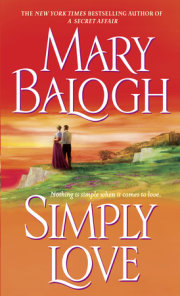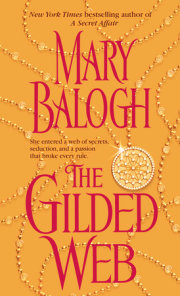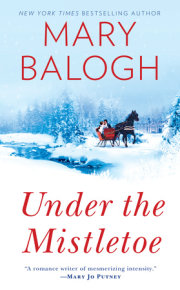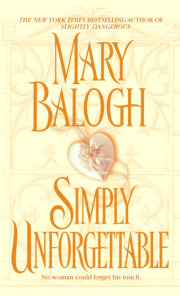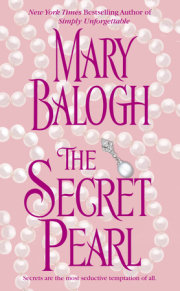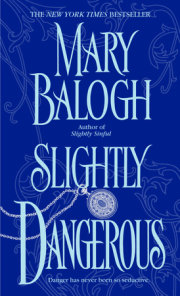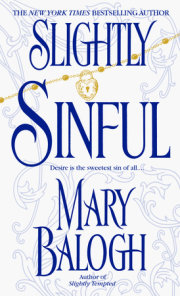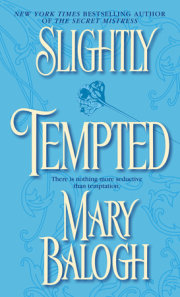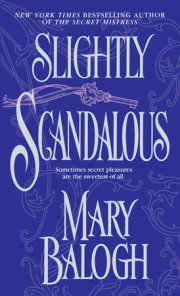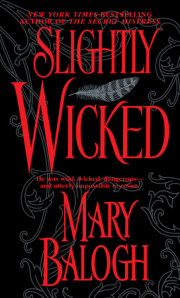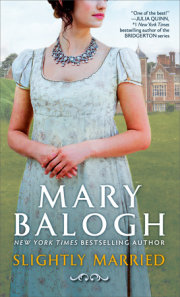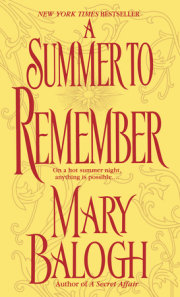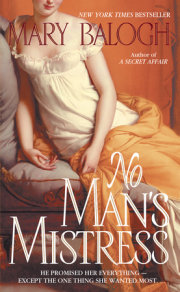1
“Anyway,” Lady Sophia Bryant said, “I have no intention of marrying anyone. Ever.” She gave her yellow parasol a twirl above her head and looked into the flowing waters of the River Thames, which sparkled in the May sunshine.
It was a rash statement to make considering the fact that there were three perfectly eligible gentlemen in the group that adorned the grass on the riverbank at Lady Pinkerton’s garden party in Richmond. There were two other young ladies there, too, one Lady Sophia’s close friend and the other one of the greatest gossips of the younger generation. By nightfall the whole of London would know what she had just said, including her papa, who had brought her to London for the Season, doubtless with the intention of finding her a husband despite the fact that she had not quite reached her eighteenth birthday.
But she had meant the words.
“Then there will be no further point in being in town,” Mr. Peter Hathaway said. “We gentlemen might as well pack our trunks and retire to the country, Lady Sophia.” He caught the eye of Lord Francis Sutton, who was sprawled on his side, propped on one elbow, his chin on his hand. He was sucking on a blade of grass. He raised one expressive eyebrow and Mr. Hathaway grimaced. “Were it not for the presence of Miss Maxwell and Miss Brooks-Hyde, of course,” he added hastily.
“But why, Lady Sophia?” Miss Dorothy Brooks-Hyde asked. “Would you prefer to be a spinster dependent upon your male relatives for the rest of your life? You do not even have any brothers.”
“I shall not be dependent,” Lady Sophia said. “When I am one-and-twenty I shall come into my fortune and set up my own establishment. I shall cultivate the best of company about me, and all the married ladies will envy me.”
“And you will cultivate the label of bluestocking into the bargain, Soph,” Lord Francis said, first removing the blade of grass from his mouth. “It won’t suit you.”
“Nonsense,” she said. “You are going to be horribly covered with grass, Francis.”
“Then you can brush me down,” he said, winking at her and returning the blade of grass to his mouth.
“I do not wonder that the name of rake has sometimes been attached to you in the past few years, Francis,” Lady Sophia said severely.
“Sophia!” Miss Cynthia Maxwell said reproachfully, dipping her parasol in front of her face to hide her blushes from the gentlemen.
Sir Marmaduke Lane entered the conversation. “Seriously, Lady Sophia,” he said, “it is neither easy nor advisable to avoid matrimony. Our society and the whole future of the human race depends upon our making eligible connections. Indeed, one might even say it is our duty to enter the married state.”
“Fiddle!” was Lady Sophia’s reaction to this rather pompous speech. “Why would one give up one’s freedom and the whole of one’s future happiness just out of a sense of duty?”
“I would rather have said that happiness comes from marriage and the bearing of children,” Dorothy said. “What else is there for a woman, after all?” She glanced at Lord Francis for approval but he was occupied with the absorbing task of selecting another blade of grass to suck upon.
“Marriage brings nothing but unhappiness,” Lady Sophia said hotly. “Once the first flush of romance has worn off, there is nothing left. Nothing at all. The husband can return to his old way of life while the wife is left with nothing and no means of making anything meaningful out of what remains of her life. And there is no getting out of marriage once one is in, beyond praying every night for the demise of one’s partner. I have no intention of allowing any such thing to happen to me, thank you very much.”
“But not all marriages are so unfortunate, Sophia,” Cynthia said soothingly. “Most couples get along tolerably well together.”
“Well, my parents’ marriage is a disaster,” Sophia said, twirling her parasol angrily and glaring out across the water. “My mother has not left Rushton in almost fourteen years and my father has not set foot there in all that time. Don’t talk to me of getting along together.”
“Sheer stubbornness is the cause, I would guess,” Mr. Hathaway said. “I am not acquainted with your mama, Lady Sophia, but I can imagine that your papa is stubborn to a fault. They ought not to have carried on a quarrel for that long, though. Were they always unhappy together?”
“How would I know?” Sophia said. “I was only four years old when they separated. I scarcely remember their being together.”
“They should make up their differences,” Sir Marmaduke said. “They should find comfort in each other in their old age.”
Mr. Hathaway snorted while Lord Francis grinned. “I don’t know the countess, Lane,” the former said, “but I would wager that Clifton would not enjoy being informed that he is in his dotage. You cannot find some way of bringing them together, Lady Sophia?”
“Why?” she said. “So that they may quarrel and part again?”
“Perhaps they would not, either,” he said. “Perhaps they would be delighted to see each other again.”
“Of course,” Dorothy said, “ladies do lose their looks faster than men. Perhaps he would be shocked to see her aged.”
“Mama is beautiful!” Sophia said. “Far lovelier than . . .” But she would not complete the comparison. Lady Mornington was undoubtedly Papa’s mistress, discreet as they both were about their relationship. But Mama was lovelier for all that. Ten times--a hundred times--lovelier.
“Then you should bring them together,” Mr. Hathaway said. “It was probably a foolish quarrel, anyway.”
“Oh, how could I possibly accomplish such a thing?” Sophia said irritably.
“Say you want your mama here for the Season, Sophia,” Cynthia said. “It is perfectly understandable that you would wish her to be here for your come-out.”
“Papa asked me if I wanted her or him to bring me out,” Sophia said. “If I had said Mama, then he would have stayed away. I would not choose. I refused. Anyway, I do not believe Mama would have come. She has been in the country for too long.”
“You will have to get yourself involved in some scandal, Soph,” Lord Francis said after working the blade of grass to the side of his mouth. “That will bring her at a trot. Find someone quite ineligible to elope with.”
“Oh, do be serious, Francis,” she said crossly. “Why would I want to elope with anyone? I would be forced to marry him and probably would not bring Mama and Papa together after all. That is the silliest idea I ever heard.”
“Conceive a grand passion for someone ineligible, then,” he said. “Refuse to listen to reason. Threaten to elope if your father will not consent. Be as difficult as you girls know how to be. He will send for your mother out of exasperation before you know it.”
“He would be more likely to pack me off to Rushton,” Sophia said. “I do wish someone would change the subject. How did we get started on this, anyway?”
“By trying to guess who would be betrothed or married to whom by the end of the Season,” Mr. Hathaway said. “Could you not betroth yourself to someone your papa will disapprove of, yet would not like to reject out of hand, Lady Sophia? Can you not present him with a problem that he would need your mama to help solve?”
She tutted. “One of the royal dukes, perhaps?” she said.
“One of your papa’s friends, perhaps,” he said, his brow furrowed in thought. “Or the son of one of his friends. Someone he would not quite want for his daughter, and yet someone he would not like to send packing because of his friend. A younger son, perhaps--with something of a shady reputation.”
“Did someone mention my name?” Lord Francis asked. “You should conceive a grand passion for me, Soph. My father would be delighted and my mother would not stop hugging me from now until doomsday. Clifton would have an apoplexy.”
“What a ridiculous idea,” Sophia said.
“Not necessarily,” Mr. Hathaway said thoughtfully. “Clifton and the Duke of Weymouth have about as close a friendship as they come, do they not? And Sutton is certainly the type of man I was just describing.”
“Thank you,” Lord Francis said dryly. “Don’t forget, Hathaway, that there are only three older brothers and four nephews between me and the dukedom.”
“But you are something of a rake, Francis, you must admit,” Sophia said. “And what Papa calls a hellion into the bargain.”
He grinned at her and winked again. “Fancy me, do you, Soph?” he said while Cynthia dipped her parasol again, and Dorothy was almost visibly storing up details to share with her mama as soon as she decently might. “It would work, too, by Jove. I’ll wager Clifton would send his most bruising rider tearing off on his fastest mount for your mama if you just whispered your intention of making yourself into Mrs. Lord Francis.”
“How stupid,” she said. “As if I would ever in my wildest moment consider marrying you, Francis.”
He shuddered theatrically. “It is as well, then,” he said, “that I would never in the deepest of my cups consider asking you, Soph. Don’t glare. You started the insults.”
“Besides,” Sir Marmaduke said, “it would not be fitting to use the institution of holy matrimony as a charade to accomplish another goal entirely.”
“But Sophia,” Cynthia said, “do you not think it worth a try? Wouldn’t your papa really be in a dreadful dilemma?”
“I believe,” Sophia said unwillingly, “that he and His Grace once expressed a wish that their families be united by marriage. But unfortunately for them, Papa had only me and I was too young. Francis is the only son still unmarried.”
“And the black sheep into the bargain,” that young man said. “Clifton has been ominously silent on the old topic since Claude, my last respectable brother, married Henrietta two years ago.”
“The question is,” Mr. Hathaway said, “are you willing to try it, you two?”
“Enter into a passion with Soph?” Lord Francis said. “The idea has its appeal, I must admit.” His eyes laughed at Sophia as they traveled over her seated figure in its flimsy sprigged muslin dress.
“How stupid,” she said. “Stop looking at me like that.”
“But do you think your papa might send for your mama if you announced your intention of marrying Lord Francis, Sophia?” Cynthia asked.
“If I got into what Papa calls one of my stubborn moods and insisted that she be consulted, perhaps,” Sophia admitted. “But perhaps not, too. They have managed to solve all problems for the past fourteen years without once meeting face-to-face.”
“But are you willing to try?” Mr. Hathaway asked. “That is the question now. Sutton?”
Lord Francis was grinning at Sophia. “Soph?” he asked.
“I certainly am not marrying you,” she said. “If you have any secret hope that that is how it will end up, Francis, forget it.”
“There is nothing to forget,” he said. “It will be all charade, Soph. All panting and pretended passion. A counterfeit passion. I rather fancy it. Life has been tedious lately.”
“What do you say, Lady Sophia?” Dorothy asked, a note of suppressed excitement in her voice.
Sophia twirled her parasol and prepared to say one more time that the whole idea was ridiculous and that she would not, even in pretense, show a romantic interest in her old childhood tormentor. There was no bringing Mama and Papa together anyway. If they had remained irrevocably apart for fourteen years, there was doubtless no way of changing things now.
“I would strongly advise against it, Lady Sophia,” Sir Marmaduke said. “The holy institution of matrimony is not to be taken in jest.”
That did it. “I say yes,” Sophia said, lifting her chin and looking indignantly at Lord Francis’s lazy and very white grin. “I say let’s try it. But I am not marrying you, mind, Francis.”
“Good,” he said. “You had better be careful not to fall in love with me in earnest, Soph, or you will be doomed to a terrible disappointment, you know. And if you puff up like that, my girl, you might explode. You gave the first set down. I merely took my cue from you.”
“This will not work,” she said. “It is a remarkably foolish idea.”
“It might, too,” Mr. Hathaway said hastily. “But one thing we must all do is swear secrecy. Not a word or a hint. Miss Brooks-Hyde?”
Dorothy looked to be in an agony. She would fairly burst with the story. “Oh, very well,” she said. “But I hope for your sake that this charade will not go for too long, Lady Sophia. It will do your reputation no good at all.”
“Thank you,” Lord Francis said.
“I mean when she breaks off the betrothal,” Dorothy said, coloring. “Or the connection, if it does not quite come to a betrothal.”
“I do hope the scheme works for you, Sophia,” Cynthia said. “I know how you adore both your mama and your papa. And it is not as if you do not know Lord Francis at all. You have known each other forever, have you not?”
“For at least that long,” Lord Francis said. “Or is it longer, Soph? I can remember outrunning you when you could scarcely walk.”
“Lane?” Mr. Hathaway asked.
“You may depend upon me,” Sir Marmaduke said. “I can only applaud your efforts to effect a reconciliation between your parents, Lady Sophia, even if I must frown upon your methods. But I shall say nothing.”
“And I shan’t, of course,” Mr. Hathaway said. “So all is settled. And since the Earl of Clifton is at this garden party, I would suggest that the two of you link arms and stroll off and start falling desperately in love.”
“Done,” Lord Francis said, getting unhastily to his feet and stretching out a hand to help Sophia to hers. “You will be able to brush me off after all, Soph.”
“I absolutely will not,” she said indignantly. “You may brush yourself off.”
“You see?” he said, appealing to the rest of the group. “She is afraid that if she once lays hands on me, she will not be able to remove them again.”
Miss Cynthia Maxwell tipped her parasol once more to hide her blushes.
She leaned forward in her seat the better to see out of the carriage window. It looked amazingly the same, the village of Clifton, though she had not seen it for well over fourteen years. She looked half eagerly, half unwillingly at the parish church with its tall, elegant spire and its cobbled path that wound through a sleepy churchyard.
They had run along it after their wedding, hand in hand, laughing, eager to escape from the boisterous greetings of family and friends and villagers, eager to reach the carriage outside the gate, eager to be behind the curtains where they had found the privacy in which to kiss lingeringly and gaze into each other’s eyes and smile with the novel and incredible knowledge that they were man and wife, that she was his viscountess.
Copyright © 2013 by Mary Balogh. All rights reserved. No part of this excerpt may be reproduced or reprinted without permission in writing from the publisher.

